Are you ready to dive into the world of music production? Crafting a solid music production agreement is crucial for protecting your creative rights and ensuring smooth collaboration. In this article, we'll explore the key components to include in your agreement, from defining roles to outlining payment terms. Stick around as we break it all down to help you create a fantastic foundation for your musical ventures!
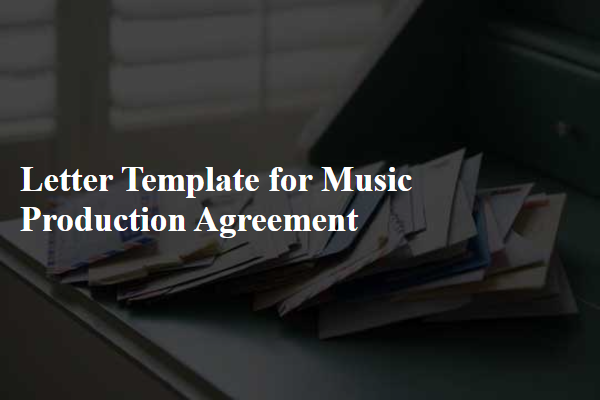
Parties Involved
This music production agreement involves two primary parties: the Producer, a skilled music professional responsible for overseeing the recording and production process, and the Artist, an individual or group seeking to create and release music. The Producer may represent a recording studio or operate independently, while the Artist can be a solo performer or band. The agreement outlines their roles, responsibilities, and contributions during the music production process, ensuring clarity about intellectual property rights, payment structures, and distribution plans for the final music product. Clear identification of both parties, including full legal names and contact information, establishes the contractual relationship and prevents any misunderstandings throughout the project.
Scope of Work
The Scope of Work for a music production agreement outlines the specific tasks and deliverables involved in the production process. Essential elements include recording sessions at designated studios (e.g., Sunset Sound in Los Angeles), sound engineering for multiple tracks (often ranging from 10 to 15 songs), mixing and mastering processes, and the timeline for completion (typically within three months). Additionally, the agreement may specify the roles of various contributors, such as the producer, musicians, and vocalists, along with their respective responsibilities in the creation of the sound, arrangement, and instrumentation. Licensing rights for the final product, which may include distribution formats like digital platforms (Spotify, Apple Music), must also be defined clearly.
Compensation and Payment Terms
Music production agreements outline essential compensation and payment terms crucial for protecting the interests of the parties involved. Payment structures typically include upfront fees or advance payments, calculated percentages of revenue generated from the produced music, and possible royalties that ensure continuous income. For instance, a common practice may involve a 50% split of net profits from streaming services like Spotify and Apple Music, allowing contributors to benefit from the music's success. Deadlines for payments should clearly define when each payment occurs, such as upon completion of the project or scheduled milestones, ensuring financial transparency. Additional provisions often cover possible deductions for marketing expenses or advances recouped from future earnings, providing a comprehensive understanding of financial obligations.
Ownership and Copyright
In music production agreements, ownership and copyright are crucial components that dictate rights to the music created during the collaboration. Music copyrights, governed by laws in various countries such as the United States (under the Copyright Act of 1976) and the United Kingdom (under the Copyright, Designs and Patents Act 1988), grant the creator of the work exclusive rights to reproduce, distribute, and publicly perform the music. Ownership typically outlines who holds the rights to the final master recordings and compositions, which can vary based on contractual stipulations. For instance, many independent artists retain ownership of their masters, whereas labels might claim exclusive rights when financed through them. This aspect often necessitates clarifying terms for royalties, licensing, and potential revenue sharing from placements in film, television, or streaming platforms. Additionally, producers and songwriters may negotiate provisions regarding the use of samples or derivative works, further complicating the landscape of music ownership.
Termination and Confidentiality
A music production agreement's termination and confidentiality clauses ensure parties uphold their commitments and protect sensitive information. Termination may outline conditions under which either party can end the contract, like failure to meet deadlines or breach of terms. Confidentiality protects proprietary information, such as unreleased tracks or financial details, preventing unauthorized disclosure to outside parties. It typically requires parties to maintain secrecy for a specified duration, often five years post-termination. Enforcement mechanisms may include legal remedies for breaches, emphasizing the importance of maintaining trust and collaboration in music production.

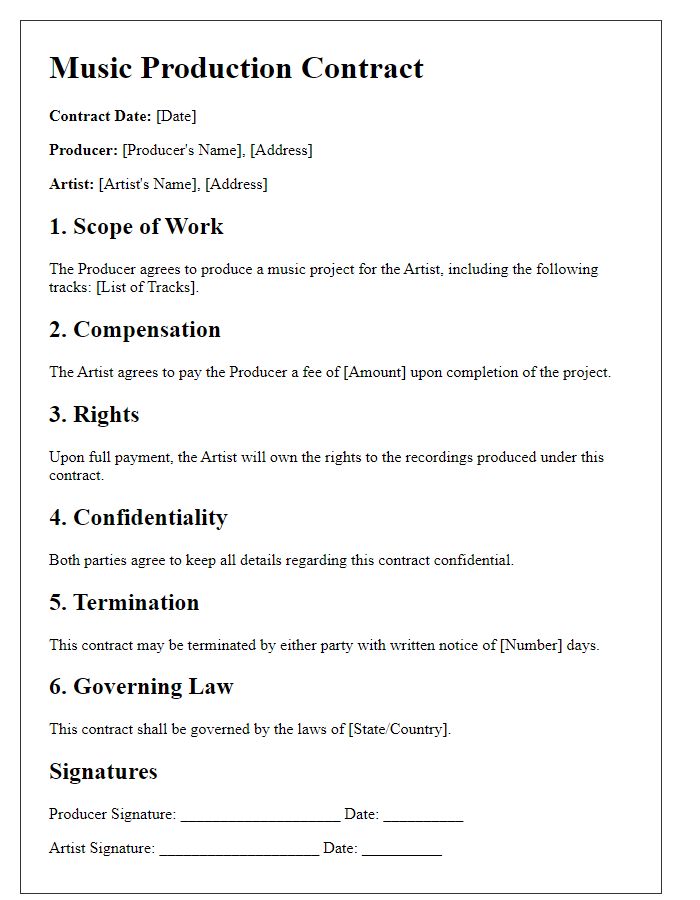

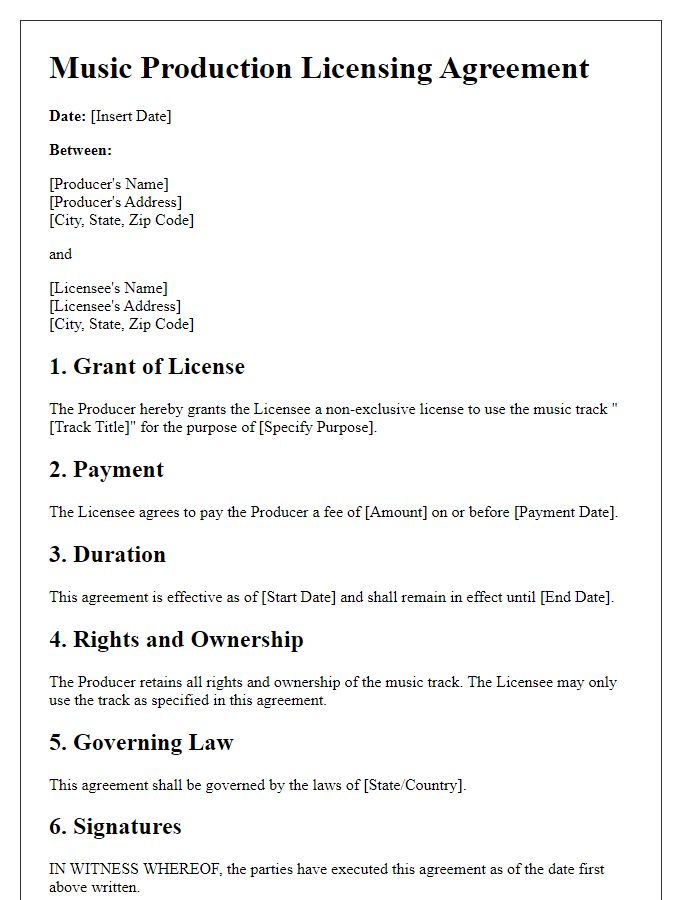
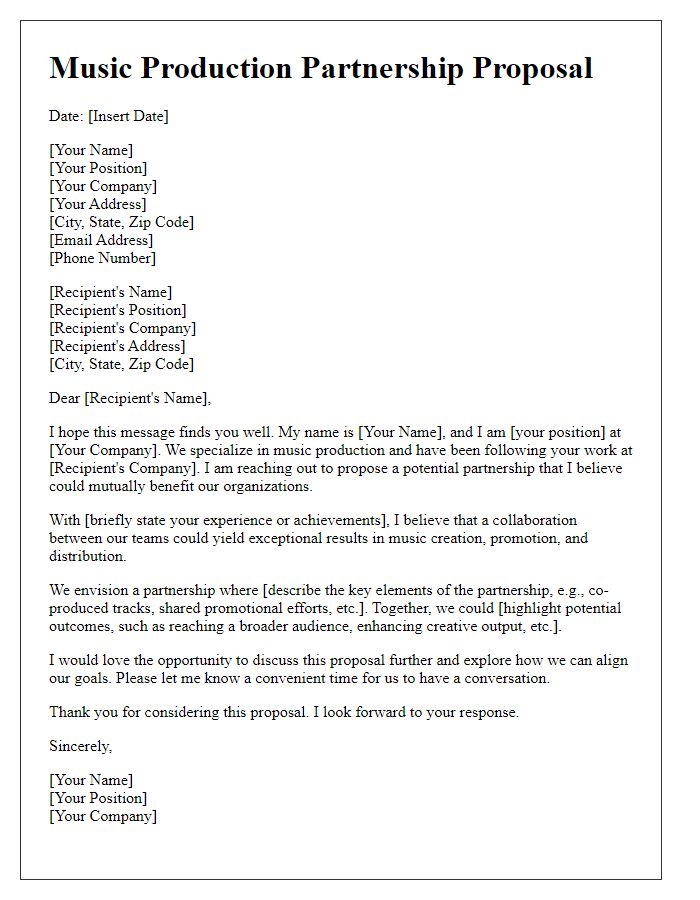
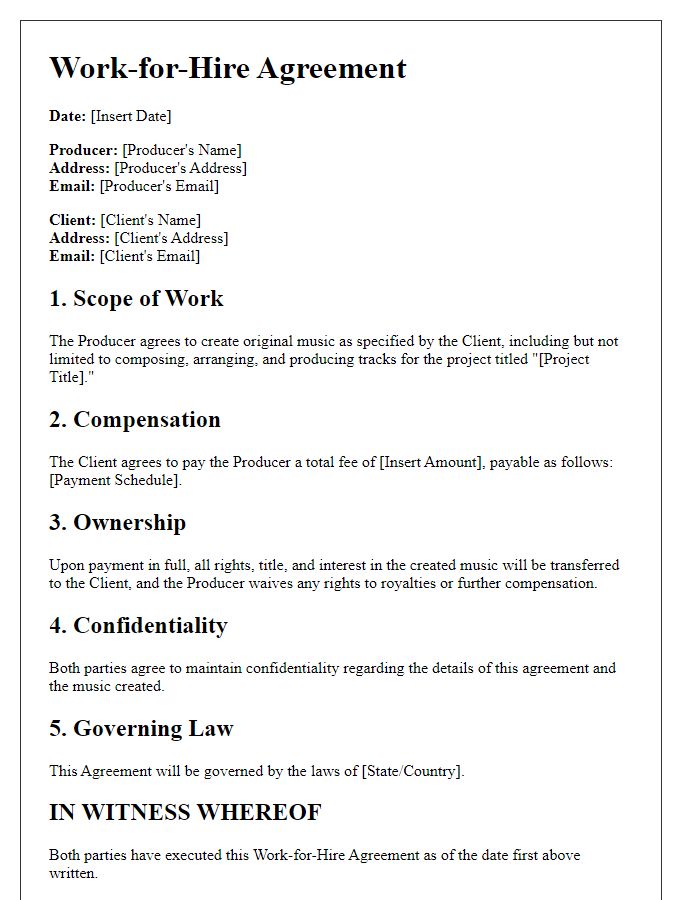
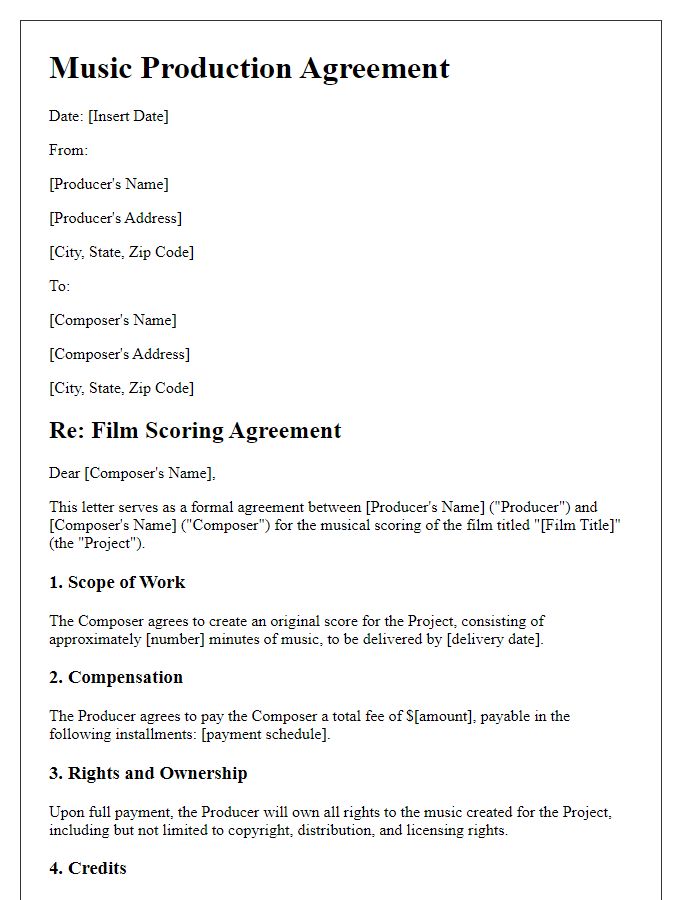
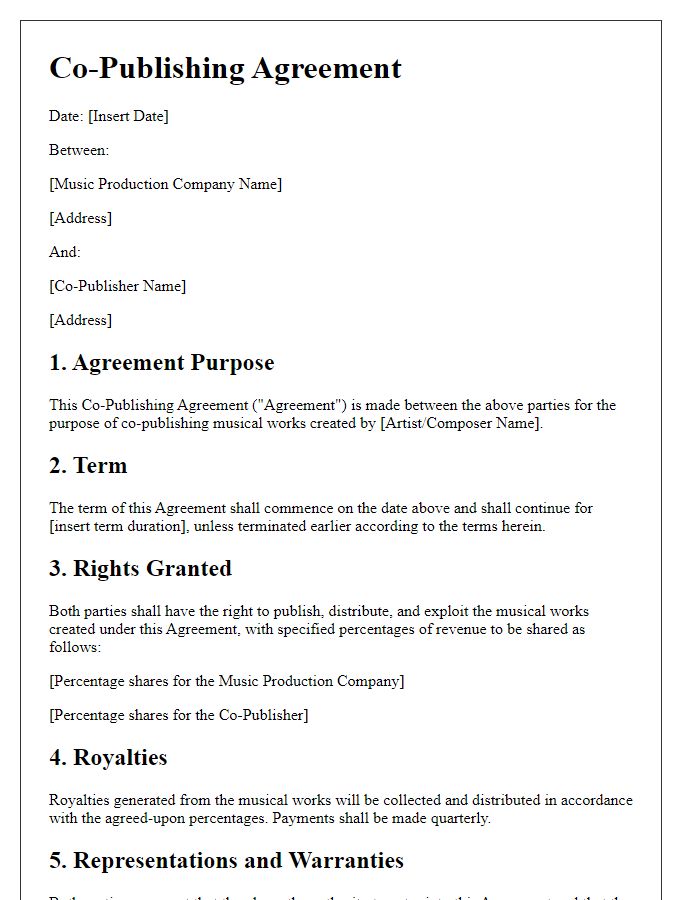
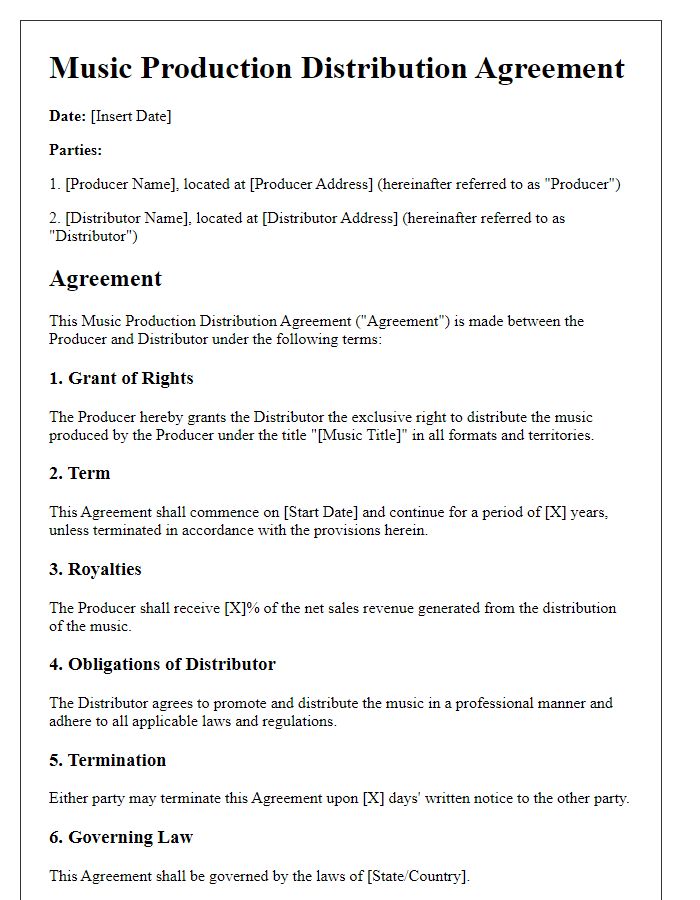
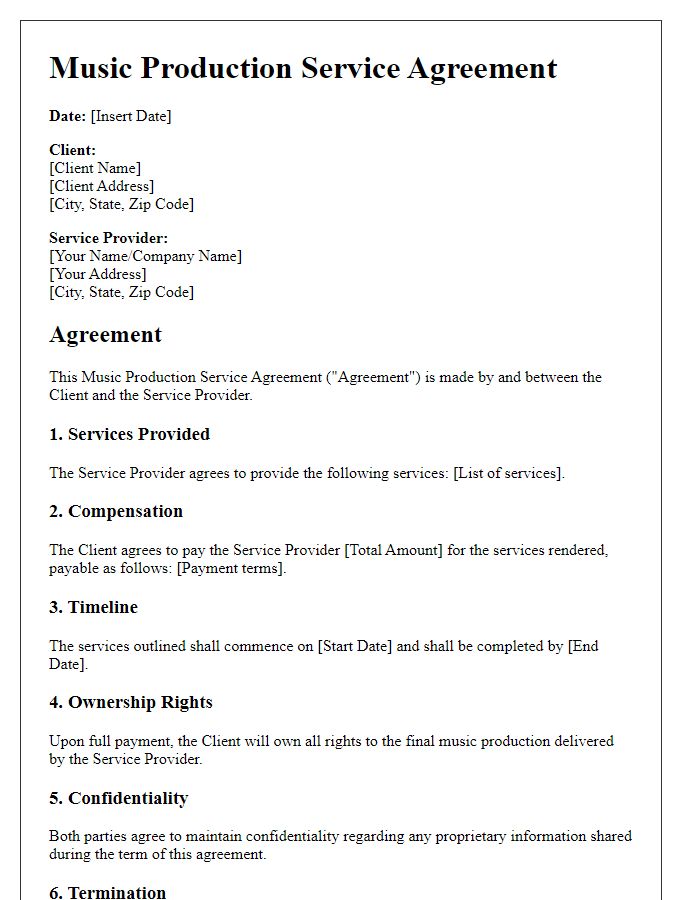
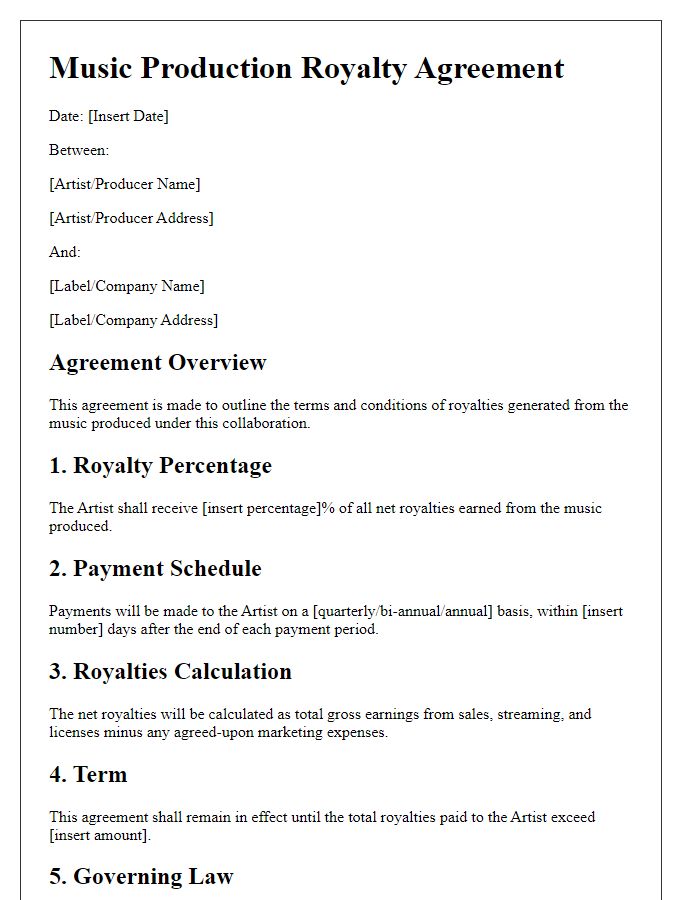


Comments